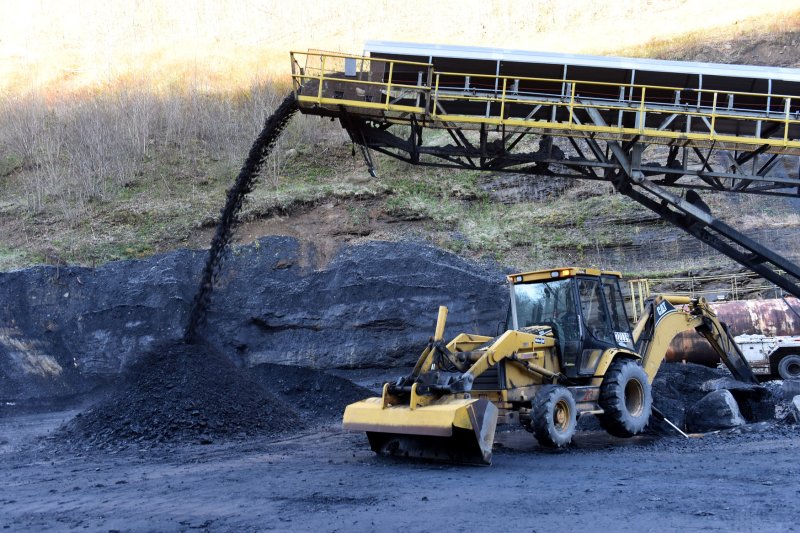A report from the International Energy Agency finds coal demand is shifting to emerging economies in Asia that need cheaper fuels to continue momentum. Photo by Debbie Hill/ UPI |
License Photo
BEIJING, Dec. 12 (UPI) -- Higher prices for some fossil fuels leaves emerging economies in Asia looking to cheaper coal, which remains the fuel of choice globally, the IEA said.
The International Energy Agency said coal use globally should remain relatively steady as the appetite for alternative sources grows. According to a mid-term report for coal, the IEA said the share of coal as a power source should drop from 41 percent in 2014 to 36 percent by 2021.
Keisuke Sadamori, who launched the report from Beijing for the IEA, said coal has come under pressure because of its impact on the climate, though it remains a fuel of choice for many economies.
"Coal demand is moving to Asia, where emerging economies with growing populations are seeking affordable and secure energy sources to power their economies," he said.
China accounts for about 50 percent of the global demand for coal and, because of the size of its economy, that translates to about half of the world's total coal production.
The Chinese government in early December issued a white paper that outlines the approach to development under the guidance of the Communist Party. The paper states that China has been at the forefront of the effort to infuse environmental protection with state policy, becoming the first country in the world to offer a sustainable development strategy in the 1990s.
Coal-based heating and industrial activity in Beijing are key contributors to the air pollution. A five-year plan introduced in early 2016 called for stricter rules on energy conservation and a stronger focus on industries associated with environmental protection.
For the United States, the IEA said coal consumption declined by 15 percent last year as renewable energy resources like wind power gain momentum. The coal decline in the United States last year was the largest annual decline ever recorded by the IEA.
The trajectory for the United States is unclear given President-elect Donald Trump's zeal for the fossil-fuels industry. He's questioned the country's role in the Paris climate deal and picked several top oil and gas industry leaders for his future Cabinet.















